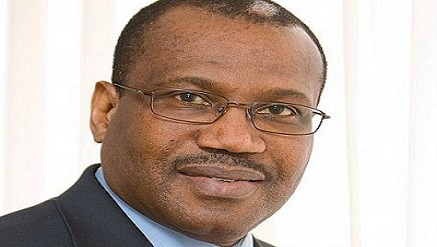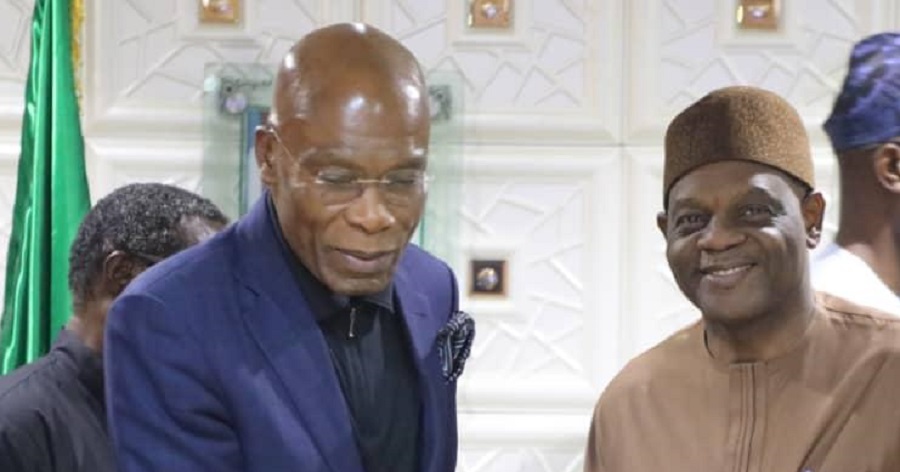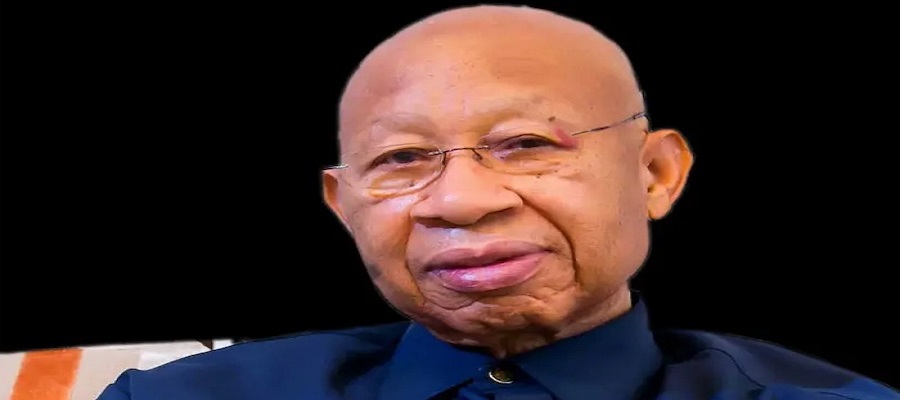News
Digital Inclusion of Persons with Disabilities Lagging Behind-ITU

The Model ICT Accessibility Policy Report released in São Paulo, Brazil recognizes that despite the unprecedented growth in mobile and Internet use worldwide, very few nations have acted to ensure that persons with disabilities are part of the technology revolution.
The Report is jointly published by the International Telecommunication Union (ITU) and the Global Initiative for Inclusive Information and Communication Technologies (G3ict).
The report notes that although many countries have information and communication technology (ICT) laws, policies and regulations that generally support the principles of universal access to ICT, the needs of the disability community are different and require a deliberate additional focus on ICT accessibility by legislators, policy-makers and regulators aimed at removing barriers to ICT use.
The policy framework was launched today at the Accessible Americas meeting organized by ITU, UNESCO, Brazil and the National Secretariat for the Promotion of the Rights of People with Disabilities of the Human Rights Secretariat of the Presidential Cabinet of the Brazilian Republic (SDH) in São Paolo, Brazil.
Bearing in mind the barriers faced by persons with disabilities in using many mainstream ICTs, the report is designed to guide national policy-makers and regulators in creating their own ICT accessibility policy frameworks in consultation with persons with disabilities.
It focuses on different aspects of ICT accessibility, namely amendments to the existing ICT legal framework, public ICT access, mobile communications, television/video programming, government websites and public procurement of accessible ICTs.
“ITU is working with all stakeholders towards global ICT accessibility and affordability in all countries and regions and by all peoples, including persons with disabilities,” says ITU Secretary-General Hamadoun I. Touré. “There is no doubt that ICTs can enable and accelerate access to resources such as education and health care for persons with disabilities leading to their greater social, economic and political inclusion.”
“The report contains concrete steps that can be taken to make meaningful rules and regulations to ensure that ICT accessibility becomes a reality on the ground,” said Mr Brahima Sanou, director of the ITU Telecommunication Development Bureau. “It helps regulators and policy makers to become action-oriented.”
“ITU’s leadership in promoting ICT accessibility plays an important role in realizing the promises of the Convention on the Rights of Persons with Disabilities”, said Axel Leblois, president and executive director of G3ict.
“The report, which is the result of seven years of cooperation between ITU and G3ict, offers easy to use policy frameworks inspired by existing good practices and available technologies from around the world. It also emphasizes the critical importance of involving relevant stakeholders in developing and monitoring ICT accessibility policies with the active participation of persons with disabilities.”
Mr Leblois added: “It is our hope that the model policies presented in the report will help accelerate the accessibility of essential ICT products and services for citizens of all abilities.”
The Model ICT accessibility policy report is developed for ICT policy-makers, regulators and other stakeholders active in ICT and/or disability issues, including non-governmental organizations (NGOs), organizations of persons with disabilities, and parliamentarians.
The report has been prepared pursuant to the United Nations Convention on the Rights of Persons with Disabilities and in line with the ITU and G3ict ICT Accessibility Policy Toolkit for persons with disabilities.
At the last World Telecommunication Development Conference (WTDC 2014) held in April this year, ITU Members reaffirmed, by adopting Resolution 58, the need for accessible ICTs for persons with disabilities through the development of national legal frameworks, laws, regulations and policies.
Likewise, the ITU Plenipotentiary Conference held in Busan, Republic of Korea, October-November 2014, established the Connect 2020 Agenda which includes four high-level goals: growth, inclusiveness, sustainability and innovation, and partnership. The goals are accompanied by a set of targets, among which “Enabling environments ensuring accessible telecommunications/ICTs for persons with disabilities should be established in all countries by 2020”.
Digital Inclusion is part of the ITU Telecommunication Development Sector’s activities designed to promote ICT accessibility and use for the social and economic development of people with specific needs, including indigenous peoples and people living in rural areas; persons with disabilities; women and girls; and youth and children.
News
Zinox Technologies, TETFUND Collaborate for Tech-Driven Sustainable Future in Tertiary Schools

Zinox Technologies Limited, a leading ICT solutions provider in West Africa, has engaged with the Tertiary Education Trust Fund (TETFUND) in Abuja, marking a significant step towards advancing innovation and sustainable energy solutions within Nigeria’s tertiary education landscape.

Dr. Leo Stan Ekeh, Zinox Chairman (left) and Arc. Sonny Echono, Executive Secretary, TETFUND (right) after the meeting
Under the theme “Advancing Innovation for a Sustainable Future,” the meeting aimed to establish a collaborative framework for technological transformation.
The Zinox delegation was led by Dr. Leo Stan Ekeh, its chairman, and included key members of the company’s executive management team.
On the TETFUND side, Arc. Sonny Echono, executive secretary, was joined by members of his top management team for the high-level discussions.
The highlight of the visit was the establishment of a strategic partnership between Zinox Technologies and TETFUND to provide renewable energy solutions to universities and polytechnics across Nigeria.
Additionally, Mrs. Kelechi Eze-Okonta, managing director, delivered a comprehensive, world-class presentation on the company’s diverse verticals and advanced ICT services, underscoring the need for intentional policy measures to support indigenous technologies for sustainable economic growth.
The TETFUND team expressed their appreciation for Zinox’s contributions to technology awareness, implementation, and adoption in Africa.
Arc. Sonny Echono, executive secretary of TETFUND, conveyed his deep appreciation for the visit by the Zinox team and commended Dr. Leo Stan Ekeh for his unwavering and impactful contributions to Nigeria’s digital transformation, stating that efforts are underway to establish a framework for effective energy solutions in tertiary institutions.
Highlighting Zinox Technologies’ expertise and proven track record, Arc. Echono expressed optimism about partnering with the company to develop scalable and efficient power solutions for academic institutions.
While both organizations remain committed to implementing innovative initiatives that enhance institutional capacity across the nation’s higher education sector, the visit marks a significant milestone in establishing a strategic partnership to equip Nigeria’s tertiary institutions with the essential technological infrastructure for a sustainable, digitally-driven future.
News
ST Team Expands Reach with New Ikeja Office

In a remarkable event, the Smart Treasure Investment Team (ST Team) unveiled its new operation office at 17, Oremeta Street, off Opebi Link Road, Oregun-Ikeja, Lagos.

Folashade Abiodun, the Head of Ikeja Office and a VIP 9 member of the team, led the inauguration with an impassioned speech celebrating the milestones that led to the new office’s establishment.
She expressed gratitude to her team members, mentors, and leaders for their dedication and support.
She highlighted the Ibalo team, Oflex team, and Abeokuta team, alongside praising mentor Tina and other leaders for their wisdom and guidance.
“The new office is not just a physical space; it is a realization of dreams and a testament to the rewards of unwavering faith, consistency, and belief in a purpose greater than ourselves,” Abiodun stated.
She described the office as a haven for nurturing aspirations, shaping visions, and empowering individuals.
As part of the vision, Abiodun emphasized the ST Team’s commitment to building a legacy of impact and financial freedom.
She declared, “We are not just building a business; we are building a legacy—impact and financial freedom, one step at a time.”
The team also expressed plans to create opportunities for constant learning and empowerment, aiming to transform lives through training and partnerships.
“This space will ensure nobody feels left out. It will be a hub for continuous learning and growth,” Abiodun added.
With hope and gratitude, Abiodun officially declared the office open, marking a significant milestone in the ST Team’s journey of transformation and empowerment in Lagos.
The launch of this office represents a bold stride toward making dreams a reality and empowering communities financially and socially.
The ST Team’s mission remains steadfast—to inspire, train, and empower, one step at a time.
News
MTN Pens Moving Tribute to Pascal Gabriel Dozie, Former Chairman

In a heartfelt tribute, MTN has hailed late Dr. Pascal Gabriel Dozie, an exceptional leader, steady hand and enduring legacy.

Pascal Gabriel Dozie, Former Chairman
In the tribute, MTN said it was deeply saddened by the passing of Dr. Dozie, founding chairman of MTN Nigeria.
He passed away at the age of 85
“We extend our heartfelt condolences to his family, friends, and all who had the privilege of knowing and working with him” the telecom giant said.
A pioneer, statesman, and titan of industry, Dr. Dozie played a pivotal role in the emergence of mobile telephony in Nigeria and in shaping the MTN Nigeria story.
He brought insight, experience, and leadership at a time when bold vision was essential.
He was instrumental in securing the early support and investment that brought the Y’ello dream to life. On May 16, 2001, he made the first call on the MTN network, a historic moment in Nigeria’s telecommunications journey.
For 18 years, from 2001 to 2019, Dr. Dozie served as Chairman, leading with strength and conviction.
His presence on the Board was unifying. He championed good governance, corporate responsibility, and long-term value, deeply committed to the greater good. In challenging times, he remained a stabilising force.
“His unwavering belief in Nigeria’s potential and his dedication to its development were truly inspiring. His leadership at MTN Nigeria laid the foundation for our success, and his legacy will continue to guide us in the years to come,” Karl Toriola, CEO, MTN Nigeria.
Some of his landmark contributions include:
The incorporation of the MTN Nigeria Foundation in 2004 and our commitment to dedicating a percentage of profit after tax to social investments;
The launch of one of Africa’s largest switching centres in 2010;
His significant role in 2015 during critical conversations around the regulatory fine and its resolution;
The introduction of Africa’s first 3G feature phone in 2018;
MTN Nigeria’s listing in 2019 on the premium board of the Nigerian Exchange.
“Dr. Dozie was instrumental in MTN Group’s expansion into Nigeria, providing visionary leadership that has left an indelible mark on our company’s history. His commitment to excellence and integrity set a standard that we continue to uphold,” Ralph Mupita, president & CEO, MTN Group.
His legacy goes well beyond MTN. He believed in Nigeria’s potential and dedicated his life to building a stronger nation.
His impact spanned banking, telecommunications, education, and public service.
He founded Diamond Bank, led the Nigerian Economic Summit Group, and served as Director of the Central Bank of Nigeria, among many other distinguished roles. A generous mentor, he inspired and guided countless individuals who continue to uphold the values he lived by.
He was a quiet revolutionary. He could ease tensions with grace and consistently led with clarity and conviction.
He was warm, principled, and deeply respected by all who encountered him.
Fondly known as PGD, he was honoured with the national awards of Officer and Commander of the Order of the Niger (OON and CON).
Beyond the accolades, what we remember most is the man himself. He was innovative, dedicated, measured, thoughtful and humble.
“We are profoundly grateful for his time with us. His memory will remain a guiding light for MTN, Nigeria’s business community, and everyone who shares his unwavering commitment to progress built on integrity and service” MTN stated

 Broadcasting3 days ago
Broadcasting3 days agoMTN Battles Netflix, Showmax with New Streaming Platform

 News3 days ago
News3 days agoHow KongaFM 103.7 Helped Cure My Insomnia Challenge

 News3 days ago
News3 days agoFG to Invest in Cutting-edge Broadcast Technology

 Broadcasting3 days ago
Broadcasting3 days agoProf Osinbajo Seeks Stronger IP Protection in Nigeria, Africa

 Broadcasting3 days ago
Broadcasting3 days agoFG Begin Technical Upgrade of Government-Owned Media

 General News3 days ago
General News3 days agoMart Networks Brings Comprehensive Cybersecurity Solutions from Infopercept to Africa

 General News3 days ago
General News3 days agoOneData Revolutionizes Caleb University Campus Connectivity, Empowering Students for the Digital Age

 E-Financial2 days ago
E-Financial2 days agoAfDB Mobilizes $2.2Bn to Support Nigeria’s Agriculture























